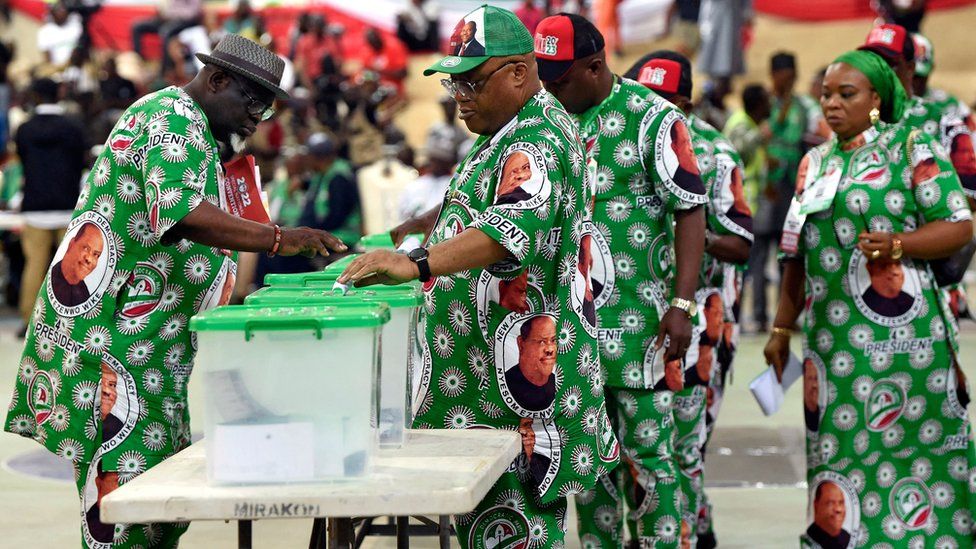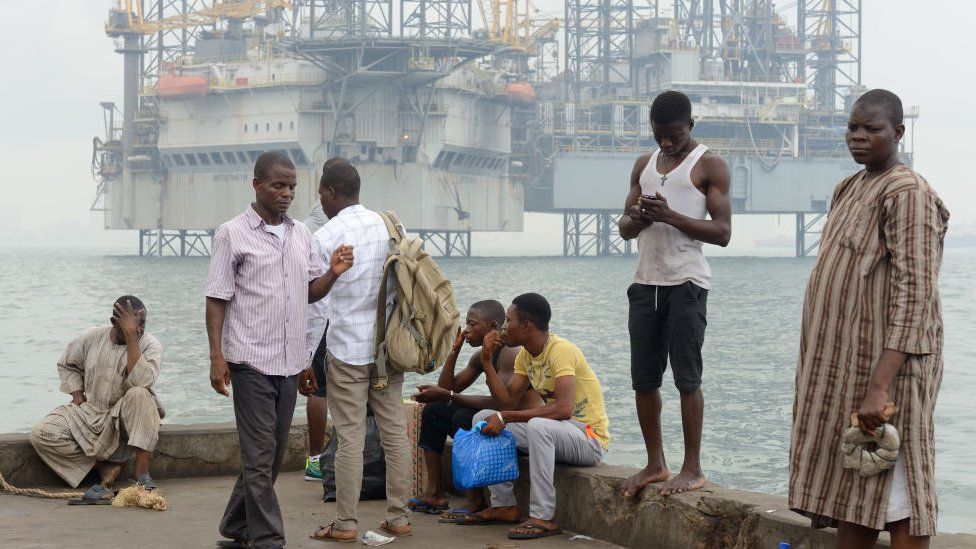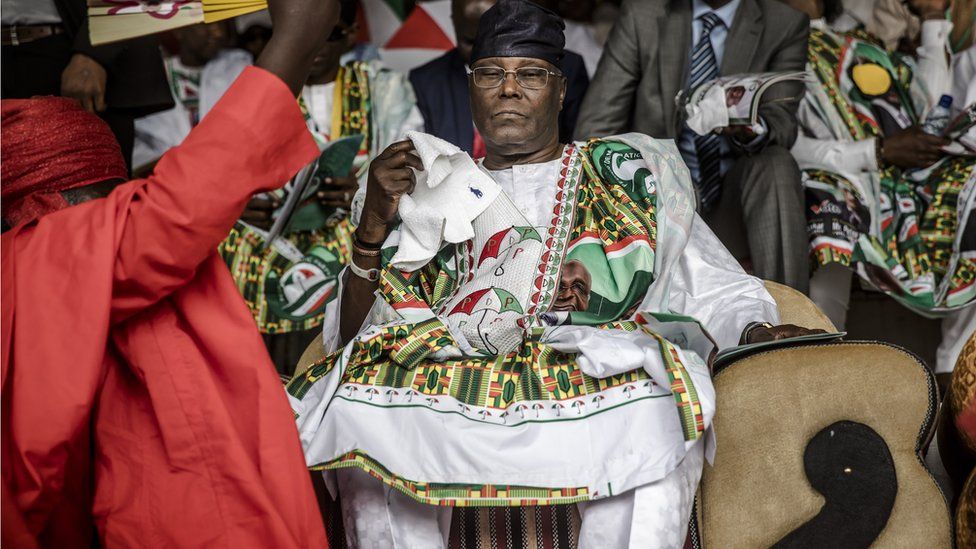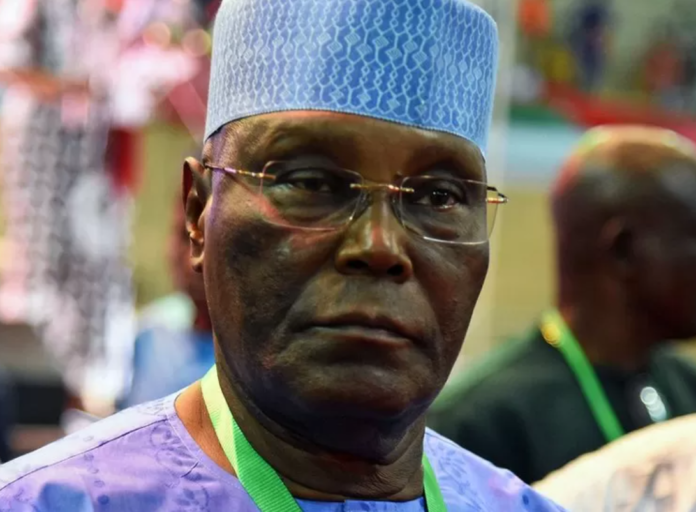Atiku Abubakar is hoping it will be sixth-time lucky in his quest to be Nigeria’s next president having fallen short on five previous attempts, the first in 1992.
The 76-year-old has circled the summits of public life for most of his career as a top civil servant, a vice-president, and a prominent businessman, making his fortune in the oil sector.
But the highest office in the land has eluded him, and in February 2023 he goes again, offering his credentials as a seasoned political operator and serial entrepreneur as the remedy for Nigeria’s ills.
Africa’s most populous country is facing soaring unemployment, widespread insecurity, high inflation, and a sluggish economy heavily dependent on fluctuating oil revenues.
Mr Abubakar’s campaign is built on his success as vice-president between 1999 and 2007, where as head of the government’s economic team he oversaw successful reforms in the telecommunications, pensions and banking sectors that led to jobs and GDP growth.
However, his critics point to accusations of financial impropriety against him which they say make him unsuitable for the top office in a country where corruption is a huge challenge.
He is accused of cronyism, especially when he oversaw the privatization of key government assets. He denies any wrongdoing and says the charges are politically motivated.
Mr Abubakar will be hoping to unite the fractured opposition Peoples Democratic Party (PDP), where cracks have emerged since his victory at the primary in June.
Some influential southern governors begrudge his emergence, saying it was the turn of the south to produce Nigeria’s next president after eight years of President Muhammadu Buhari, a northerner like Mr Abubakar.

His choice of a running mate has also stirred an open rebellion within the party, with many believing that the snub of the highly influential governor of Rivers state, Nyesom Wike, might prove costly.
A popular figure within the party, Mr Wike was considered the overwhelming favourite, having lost out in the presidential primary, but Mr Abubakar instead chose Delta state governor Ifeanyi Okowa.
Outside his party, Mr Abubakar faces a formidable opponent in Bola Tinubu, the candidate of the ruling All Progressives Congress (APC), and a bourgeoning youth-driven campaign led by the Labour Party’s Peter Obi who is targeting votes in traditional PDP areas in southern Nigeria.
There is also the challenge of convincing young Nigerians that he is a suitable choice, given his age, and that he is a break from the political class many have lost confidence in.
An affable, enterprising figure, Mr Abubakar moves adroitly between the worlds of commerce and politics – qualities that, his supporters say, will help him unite the country and revive the economy.
He has been involved in Nigerian elections for decades and has recently fluctuated between the two dominant parties, the APC and PDP – where he was a founding member, seeking a shot at the presidency.
His first exit from the PDP, in 2006, coincided with an investigation into his record as vice-president, when he was accused of diverting $125m (£95m) worth of public funds towards his business interests.
Similar charges appeared in a 2010 US Senate report, which accused Mr Abubakar of having transferred $40m (£30.55m) of “suspect funds” to the US, using his American wife’s bank account.
The charges have never been tried in court, and Mr Abubakar has rejected the allegations of corruption as politically motivated. In January 2019, he visited Washington DC, ending speculation that he was avoiding travel to the US because he might face arrest there.

He appeals to voters who want a revival of the economy and national unity, after seeing Mr Buhari administer a period of economic stagnation and accusations of ethnicity in political appointments.
Mr Abubakar’s reputation in business is linked to the spectacular rise of Intels, the oilfield logistics firm that he co-founded in 1982. From its original office in a shipping container, the company has grown into a multi-national, multi-billion naira operation, employing more than 10,000 people.
He has diverted part of his wealth to charitable causes, most notably establishing the prestigious American University in Adamawa state, northern Nigeria. The university has offered scholarships to some of the “Chibok girls” – survivors of a high-profile kidnapping by Islamist Boko Haram militants.
Mr Abubakar regards himself as a lucky beneficiary of the Western-style education offered at the university and fiercely opposed by Boko Haram. He was born in Adamawa to a devout Muslim family, and his father, a Fulani tradesman and herder, was briefly jailed for preventing him from attending school.
“Father was responding typically with fear and anxiety to the onslaught of change in Nigeria,” Mr Abubakar wrote sympathetically in his autobiography.
After finishing his studies, he joined the customs service, serving at Lagos port and airport. “Corruption was rife in Customs but I was not part of it,” he wrote. “I saw Customs… as a way of making money for the government.”
While still a civil servant, Mr Abubakar began buying property and farmland for commercial purposes, eventually moving into the emerging market for oil and gas services. “I recognised very early in life that I have a good nose for business,” he wrote in a chapter of his autobiography entitled, Making Money.
His career in customs brought him into contact with the military and political elite, two categories that have been interchangeable for much of Nigeria’s recent history. Mr Abubakar grew close to the former army major, Shehu Musa Yar’Adua, regarding him as a political mentor.
While Nigeria was still under military rule, the two men began networking with other regional leaders, hoping to form a credible government-in-waiting.
In 1989, Mr Abubakar quit the civil service to dedicate himself to politics. He made his first presidential run in 1992, as a candidate for the faction that had gathered around Shehu Yar’Adua. He stepped down after coming third in the first round, and the election itself was later cancelled by the military government.

The repression intensified in the 1990s under the dictatorship of Gen Sani Abacha. Mr Abubakar was briefly exiled in London, while his mentor, Shehu Yar’Adua, was sent to prison, where he eventually died.
Mr Abubakar returned to Nigeria in 1997 as Gen Abacha relaxed his grip on power. He became vice-president after the elections in 1999 installed the PDP candidate, Olusegun Obasanjo, in the presidency.
During two terms in office, he oversaw a series of privatisations, earning praise as a liberaliser in some quarters, and criticism elsewhere as a crony capitalist.
In his autobiography, he took credit for reforming the banking sector, the auction of mobile phone licences, as well as for an economic boom that enabled Nigeria to pay off much of its debt.
Mr Abubakar, from north-eastern Adamawa state, says he will bring back the good times if elected president in 2023.
He has four wives and 28 children.
MORE:

